Cover
Bass Musician Magazine: Jun/Jul 2010 Featuring Eddie Gomez
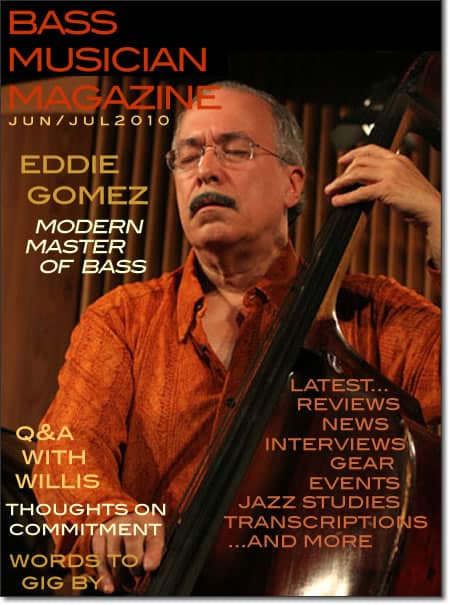

Well, Chick called me and actually didn’t elaborate on what we were going to do, although I assumed there would be some kind of connection with Bill Evans. Usually I try and stay away from Bill Evans tributes for various reasons, but I love Chick and I know that he’s one of the few guys that can give it some real credence and validity, so therefore I’m looking forward to it and I think it’s going to be great. I’m not going to do anything different than I always do with any of my groups, or with any other group. Bill is one of the people in my heart all the time when I play, whatever it is, whatever genre of music it is. So he’s not going to be any more or any less in my soul and spirituality for this project. But I’m looking forward to this, it will be interesting and certainly very compelling to think about what the results might be with Paul there. Paul and I both worked with Bill at different times, he was part of that first wonderful, innovative trio with Scott LaFaro. I came about five or six years later I guess, I joined Bill in ’66.
And Chuck Israels played in between.
Right, Chuck Israels, and also Gary Peacock and Teddy Kotick. There were really some wonderful musicians with Bill in between the initial innovative trio and myself.
Let me ask you about your time with Bill. How did he shape you as a bassist and musician in your eleven years with him?
He didn’t consciously shape me, but for me just being around him was really a huge lesson. His idea of growth and development, pretty much, was showing up for the performances and letting it happen, letting it all hang out on the performance. That was the essence of the development, and really the performance was kind of like the rehearsal, actually going out there and doing it. It’s like theatre I guess. I’m not an actor, but I think about the metaphors of theatre and sports, as well as other disciplines. I think it’s much like that, you go out there and you do it. You come prepared of course, but you let it happen and you let it be different when it can be different. You try different approaches.
One of Bill’s mantras was that the freshness and the creativity happened because you were doing more or less the same thing all the time, the same repertoire. It did change over the years depending on recordings and what was going on, but basically the repertoire didn’t change drastically and there were always certain key pieces of music that we revisited. So the growth happened onstage, during performance, in the club, in concerts. And certainly that’s how it happened for me, just by doing it a lot, just by the sheer work of all that playing, all that intensity, to make something happen every time you went out and played. It took me a while to get to that place where I felt like, well, I’m kind of comfortable here. It took a while to get to a comfort zone. In the beginning I was really raw, I had just come out of Julliard.
Your beginning with Bill?
Right, the beginning with Bill. I had already played with a lot of people like Gerry Mulligan, Benny Goodman, Buck Clayton, Paul Bley, and Marian McPartland, and had played quite a bit of orchestral music and a lot of different kinds of music. But it took me a while to really feel comfortable with being in the Bill Evans trio. The growth was probably happening all along, but it took me a while to get my legs under me and feel like this is some place where I belong and maybe I can make a contribution.
Bass Videos
Brian Bromberg, Paying Tribute to Scott LaFaro, April 2024
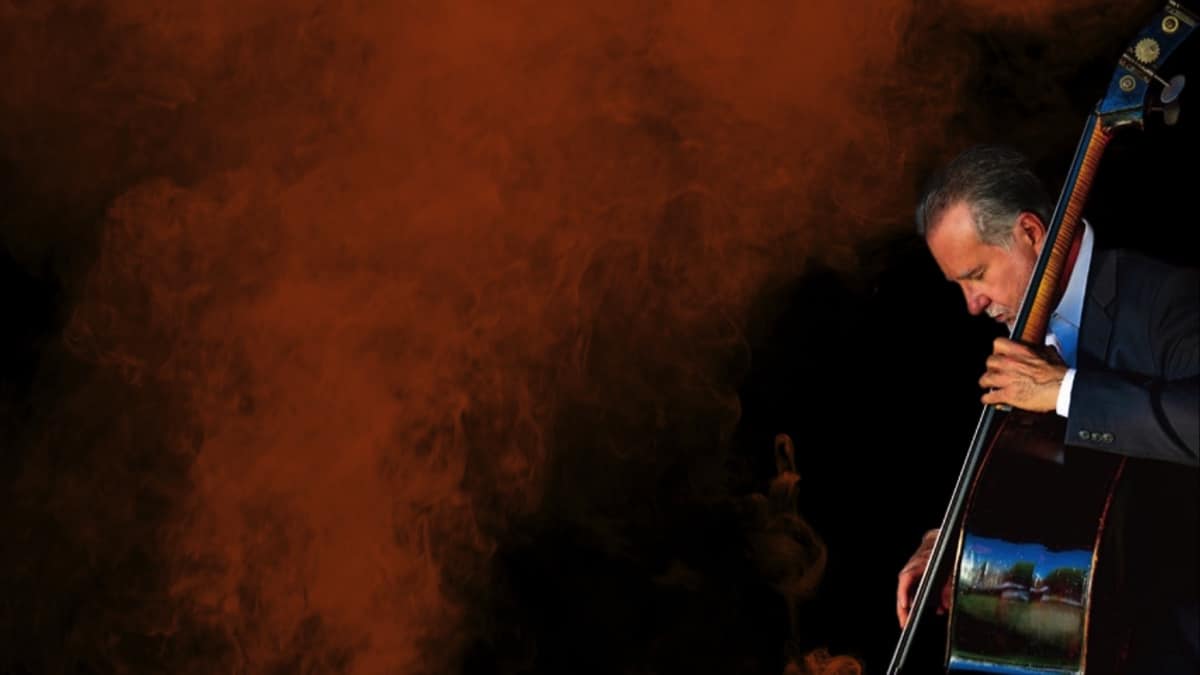
Brian Bromberg, Paying Tribute to Scott LaFaro, April 2024…

Brian Bromberg is one heavy-hitting bass player and I am in awe of his talent as one of the few individuals who is equally proficient on electric and upright bass.
You might remember our conversation back in 2018 when he released his powerhouse Funk album. Brian’s “A Little Driving Music” album is a staple on all our road trips and his Jaco and Jimi Hendrix tribute albums are mind-blowing… and I could go on and on.
Now, Brian has taken on the arduous task of producing an album paying tribute to the late, great, Scott LaFaro. He teamed up with pianist Tom Zink and drummer Charles Ruggiero and Brian delivers a commanding performance on upright. The entire album is a masterpiece and a real treat to listen to track after track.
Join us as Brian shares the details behind this project and more.
Photo, Michel Bocandé
Featured Videos
Visit Online
brianbromberg.net
FB @BrianBrombergBassist
YouTube
Cover
Leland Sklar, Over Half a Century of Bass, March 2024
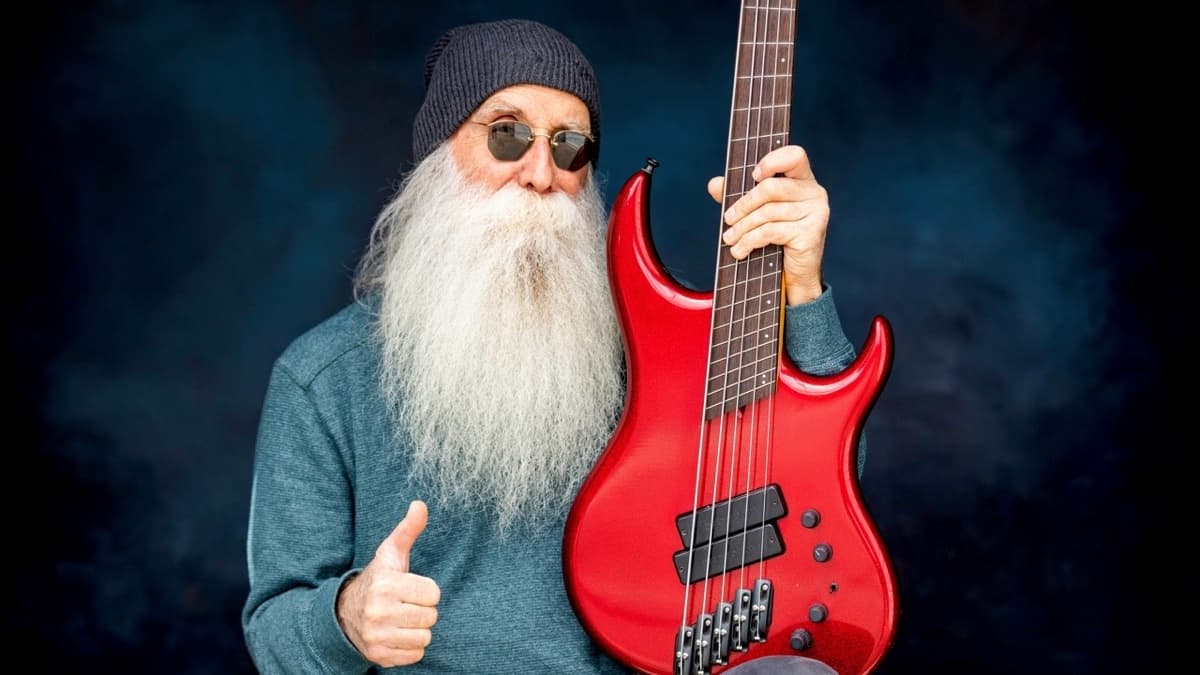
We all have enjoyed Leland Sklar’s Bass lines for over half a century.

You might remember that we had him on our cover back in 2017 and did an update when he launched his book “Everybody Loves Me” in 2020. It was exciting to hear that The Immediate Family had got back together in the studio to work on their own music in 2019 and are now up to two albums.
Just last December, Magnolia Pictures released a documentary titled “Immediate Family” where we got a behind-the-scenes look at the massive contributions Danny Kortchmar, Waddy Wachtel, Ross Kunckle, Leland Sklar and Steve Postell have made in countless songs that are the very essence of our daily personal musical soundtracks. Seeing the astronomical roster of performers they have supported over many years is very eye-opening. It is a must-see for any music lover!
Now, I am thrilled to bring you a special chat with Leland Sklar where we go more in-depth into the bass side of his musical journey.
Photos: Header, Rob Shanahan – Cover Photo, Jay Gilbert/Chris Schmitt
Featured Videos:
Skin In the Game – https://www.youtube.com/watch?v=QhbnzIrdjJ8
from new album Skin In The Game
The Toughest Girl In Town – https://www.youtube.com/watch?v=UVQLZIRfLjU
from new album Skin In The Game
Fair Warning – https://www.youtube.com/watch?v=1DN18DYwLsU –
from the self-titled album The Immediate Family
Visit Online
www.immediatefamilyband.com/
www.facebook.com/TheImmedFamily
www.instagram.com/theimmedfamily/
Bass Videos
Ricky Phillips, STYX Bass And More – February 2024

Ricky Phillips, STYX Bass And More…

I have always been a huge Styx fan. Their music kept me awake during countless nights studying and gave my imagination a place to escape when I had a moment to take a break.
I had the immense opportunity to chat with STYX bassist Ricky Phillips for our August Cover in 2017 and follow his projects as time passed. Now, I am thrilled to have the opportunity to catch up with Ricky as he has been super-busy over the past six years.
Join me as we take a deep dive into the band’s most recent album “Crash the Crown” and EP “The Same Stardust”. Ricky shares some insights into the herculean team effort behind the scenes and the musical process that keeps them ever so busy and how he has updated his sound.
Without further ado… Here is Ricky Phillips!
Photo: Jason Powell
Featured Videos:
“Crash of the Crown” lyric video
“Reveries” lyric video
“Save Us From Ourselves” lyric video
“Sound the Alarm” lyric video
“Too Much Time On My Hands” Zoom video 2020
Visit online:
www.Styxworld.com
FB & IG @styxtheband
Bass Videos
Jeff Pilson, Foreigner Low End – January 2024
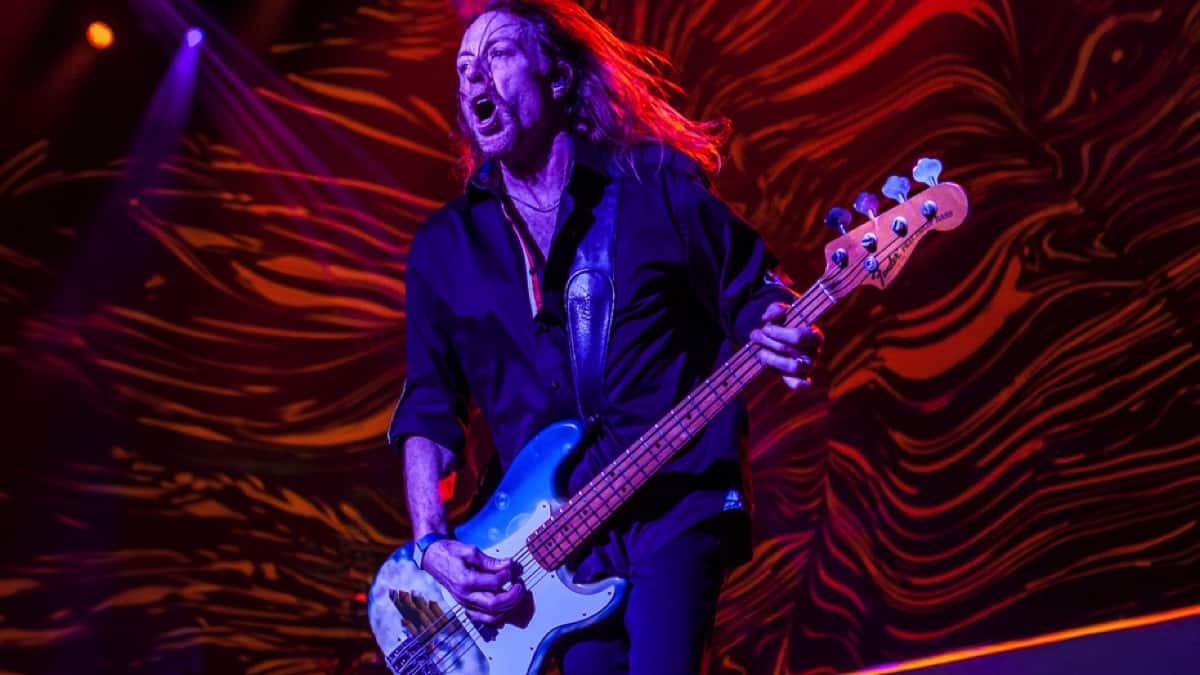
Jeff Pilson, Foreigner Low End – January 2024…

Those of us who were around back in the 70’s remember how certain songs on the radio resonated with us. It turns out that many of these iconic melodies came from Foreigner and they were part of our personal soundtracks!
After all these years, the band is going as strong as ever with Jeff Pilson firing away on bass midstream into a 2-year farewell tour.
I am excited to be able to bring you all the details about Jeff’s musical Journey, the farewell tour in progress, how he gets his sound and his plans for the future.
Cover Photo: Krishta Abruzziini / Video Photos: Krishta Abruzzini, Karsten Staiger, Gina Hyams
Featured Videos
For more news on FOREIGNER and upcoming Farewell Tour dates, fans can visit:
foreigneronline.com
facebook.com/Foreigner
twitter.com/ForeignerMusic
instagram.com/foreignerlive
youtube.com/user/FWebTeam
Also on FB @officialjeffpilson
Bass Videos
Rodney O’Quinn, Rockin’ Hard Through the Years – December 2023
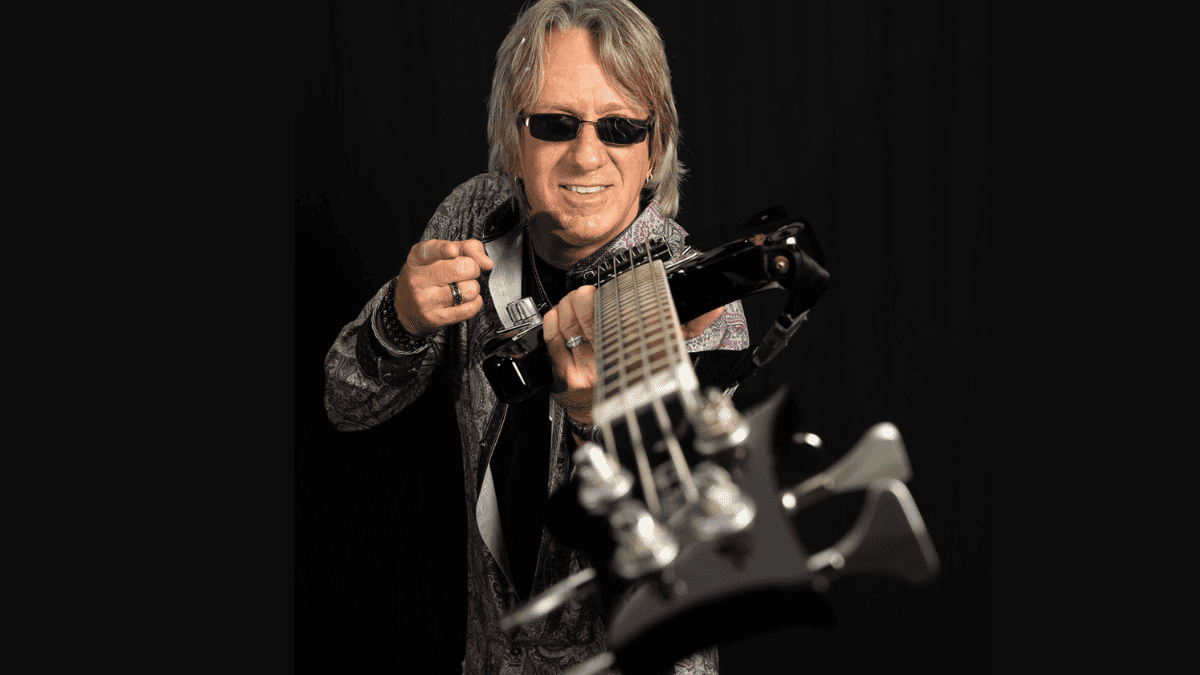
Interview With Foghat Bassist Rodney O’Quinn…

Many rock fans have enjoyed music by Foghat, who originally formed in London back in 1971.
Over the many decades of playing, the band members have changed, leaving behind only Roger Earl as the only original member. Bassist Rodney O’Quinn left the Pat Travers Band and joined the group in 2015 and has been laying down the low end for this iconic quartet keeping the Foghat legacy alive. With a new album titled “Sonic Mojo” which dropped on November 10th, the band is as busy as ever and there is lots of very tasty music to come.
Join me as we learn of Rodney O’Quinn’s musical journey, how he gets his sound, and his plans for the future.
Photos:
Cover, Jake Coughlin
Video Thumbnail, Tom Apathy
Photos used in the video: Kerry Quinn, Chuck Lanza, Kim Granger, Kenneth Strohm, Jake Coughlin, Jay Jylika
Featured Videos:
1st Single from Sonic Mojo – Official “Drivin’ On”
2nd Single from Sonic Mojo – “She’s a Little Bit of Everything Official Video
“Road Fever”- California Mid State Fair – Paso Robles, CA – 7-27-22
“Stone Blue” – Rodney O’Quinn Bass/Lead Vocals – Don Odell’s Legends – Woonsocket, R.I – 10/15/22 – The Stadium Theater
The Earl’s Court – Season 2, Episode 7: Funny Guys
“I Just Want to Make Love to You” – CasinoRama – 6-9-23
FOGHAT “Somebody’s Been Sleepin’ in My Bed” – Mohegan Sun, Uncasville, CT – 1/28/22
“I Just Want to Make Love to You” – California Mid State Fair – Paso Robles, CA – 7-27-22
Visit Online:
www.foghat.com
www.facebook.com/Foghat
www.twitter.com/FOGHAT
www.instagram.com/foghat_official
www.youtube.com/user/FOGHATMUSIC











